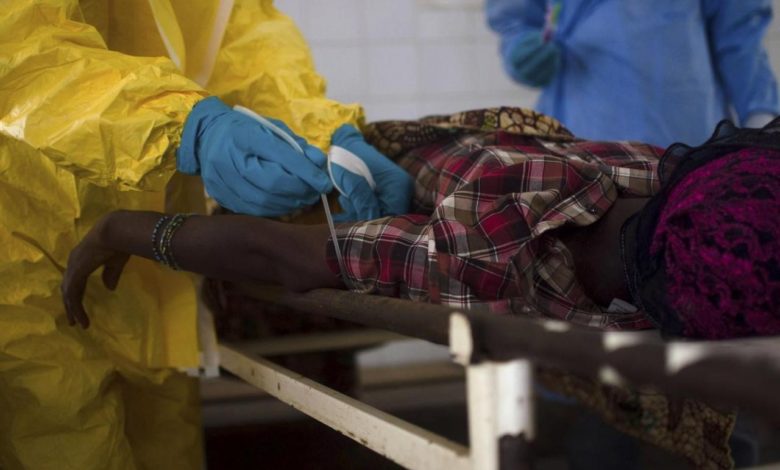Patients’ Safety A Major Concern Amidst #COVID19 Pandemic

The world is still struggling to find a way around the COVID-19 pandemic that has caused considerable disruptions and challenges to all facets of life.
It has rattled the world powers and also perplexed the third world countries whose level of preparedness for such pandemic leaves much to be desired.
The pandemic exposes the weak health care systems across many developing countries and raises more concerns for the safety of patients.
No time has the safety of patients threatened than during the current pandemic in which healthcare facilities and health care workers are stretched and in most cases overwhelmed by the demands to attend to the rising needs of patients.
Health care workers have continually been exposed to an increased risk of physiological and emotional distress, infections, stigma and even death in extreme cases from contracting the coronavirus.
There are reports that over 900 health workers have died of COVID-19 in the US and a large number of them contracted the disease in the line of duty.
These have in turn exposed patients to more harm and risks that are ordinarily avoidable.
Marking the World Patient Safety Day amidst COVID-19
No one should be harmed in health care. Yet thousands of patients across the world suffer avoidable harm, or are put at risk of injury, while receiving health care every single day, says the World Health Organisation (WHO).
The 72 World Health Assembly adopted resolution WHA 72.6 ‘Global action on patient safety’ on 25 May 2019. The resolution recognizes patient safety as a global health priority and endorses the establishment of World Patient Safety Day, to be observed annually on 17 September.
According to the WHO, World Patient Safety Day calls for global solidarity and concerted action by all countries and international partners to improve patient safety.
It says the Day brings together patients, families, caregivers, communities, health workers, health care leaders and policy-makers to show their commitment to patient safety.
The theme of the very first World Patient Safety Day in 2019 was aimed at establishing the legacy of the day and highlighting the importance of prioritizing and addressing patient safety globally by all stakeholders.
The Day is marked significantly to raise awareness and promote positive change around patient safety priority areas.
The global health body explained that “Patient safety is the absence of preventable harm to a patient during the process of health care and reduction of risk of unnecessary harm associated with health care to an acceptable minimum.”
“An acceptable minimum refers to the collective notions of given current knowledge, resources available and the context in which care was delivered weighed against the risk of non-treatment or other treatment.”
As the world marks the 2020 Patient Safety Day, the WHO emphasises the need for clear policies, organizational leadership capacity, data to drive safety improvements, skilled health care professionals and effective involvement of patients in hospital care for sustainable and significant improvement of patients safety.
It says 134 million life threatening events in hospitals occur yearly in second and third world countries, with 2.6 million deaths, while 15 per cent of hospital expenses are spent in treating patient safety failures as well.
Asides this, an additional four out of ten patients are “harmed in the primary and ambulatory settings.”
“Up to 80 per cent of harm in these settings can be avoided,” WHO stated.
The WHO findings have also suggested that more than a million patients die due to surgery complications, and remains the highest cause of death in patients. This figure is two to three times higher in low and middle class income countries.
In Nigeria’s National Health Policy 2016 and the second National Strategic Health Development Plan for 2018 to 2022, patient safety is prioritised, Dr. Osagie Ehanire, Minister of Health, stated during the first World Patient Safety Day in 2019.
The Minister disclosed that the Patients Bill of Rights which was also introduced last year, highlights that health workers were responsible for providing quality care and minimizing risk and harm to patients.
“This also includes preventable injury and errors, as well as adopting clinical governance standards, while providing “the best care while protecting patients from harm, or abuse,” Dr. Ehanire said.
This year’s theme being ‘Health Workers Safety: Priority for Patient Safety’, has proven most fitting with the roles played by healthcare workers in the fight against the current pandemic the world grapples with, especially since the safety of health workers plays directly into the safety of patients as well.
Support Our Journalism
There are millions of ordinary people affected by conflict in Africa whose stories are missing in the mainstream media. HumAngle is determined to tell those challenging and under-reported stories, hoping that the people impacted by these conflicts will find the safety and security they deserve.
To ensure that we continue to provide public service coverage, we have a small favour to ask you. We want you to be part of our journalistic endeavour by contributing a token to us.
Your donation will further promote a robust, free, and independent media.
Donate HereStay Closer To The Stories That Matter




